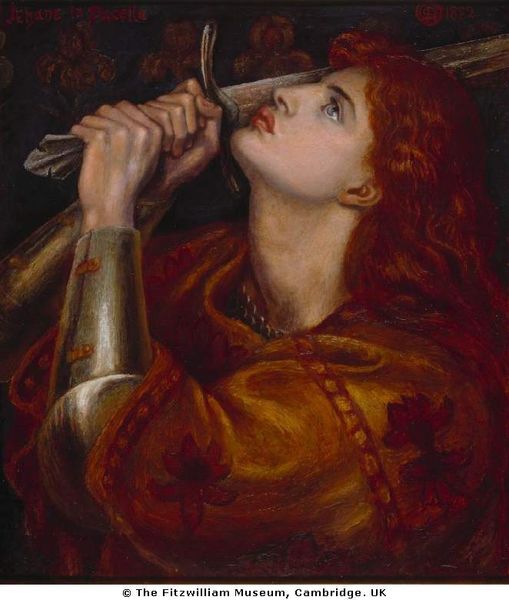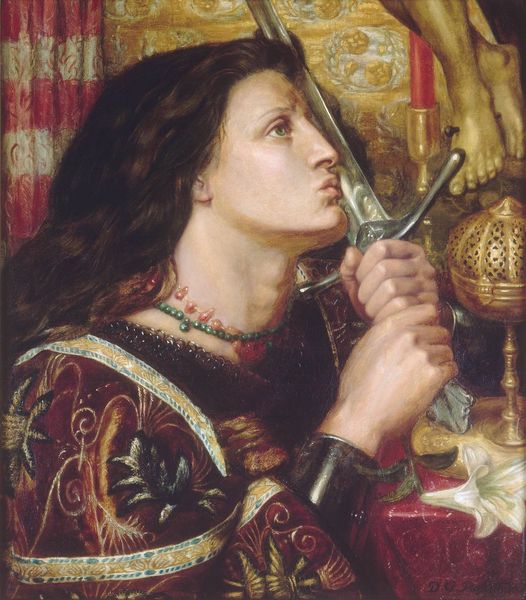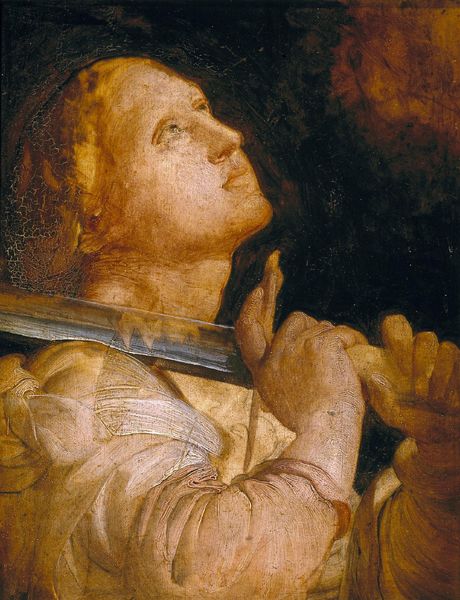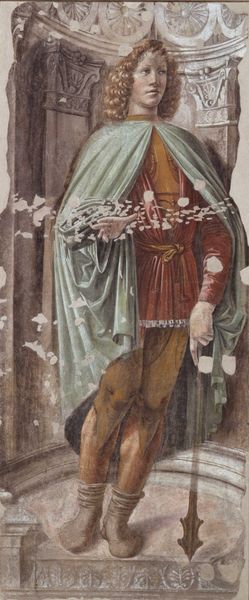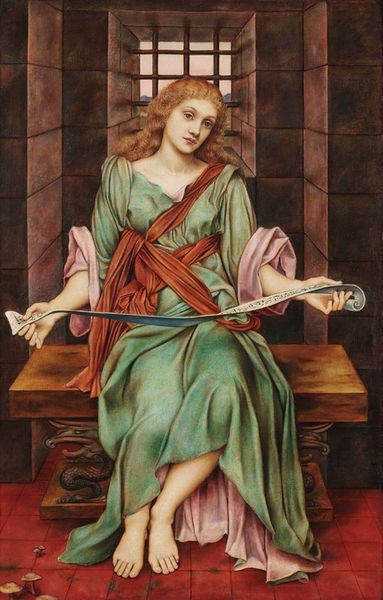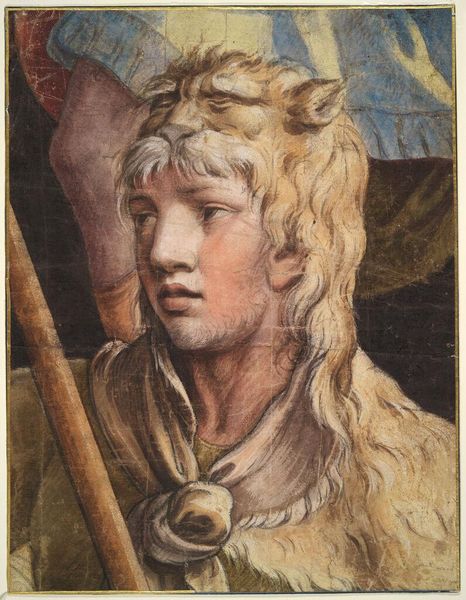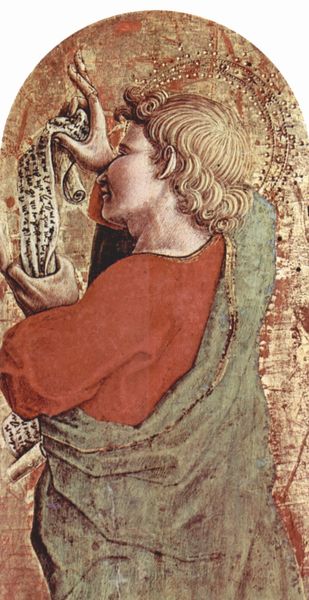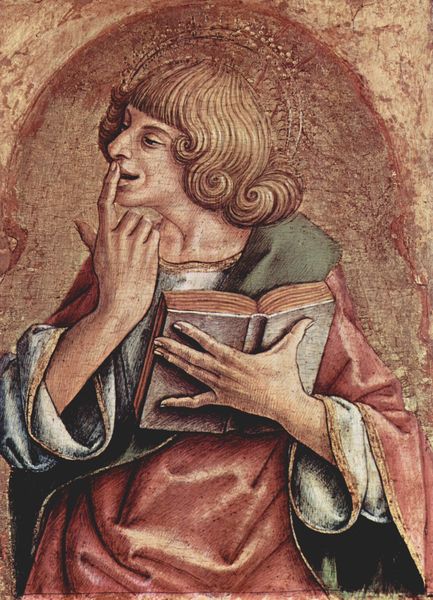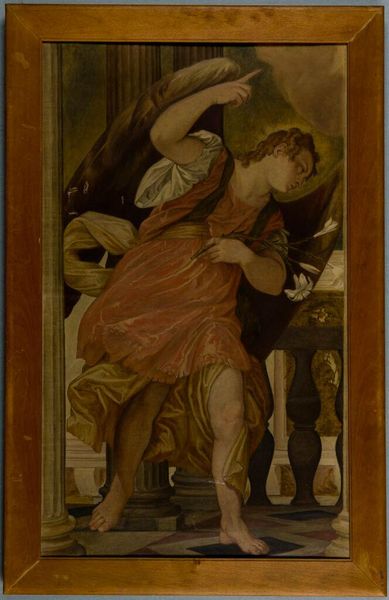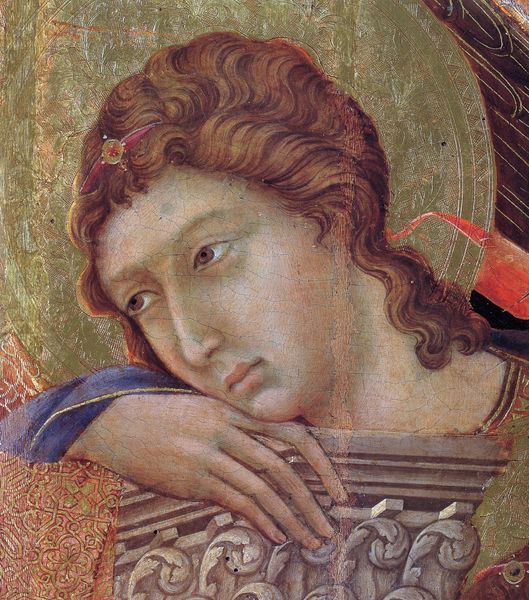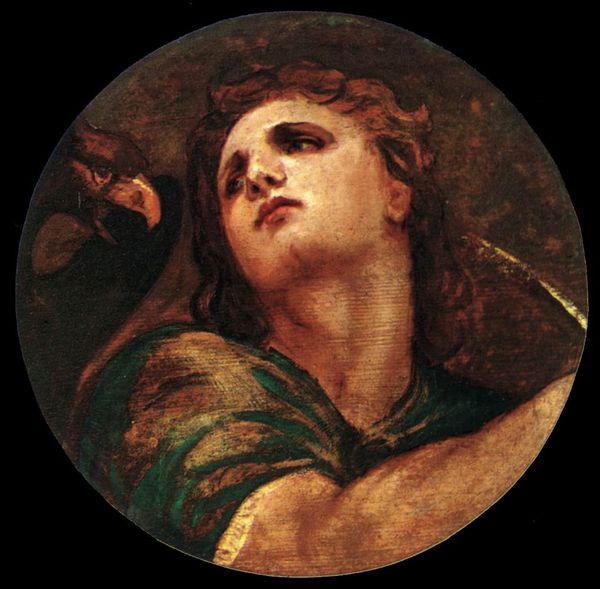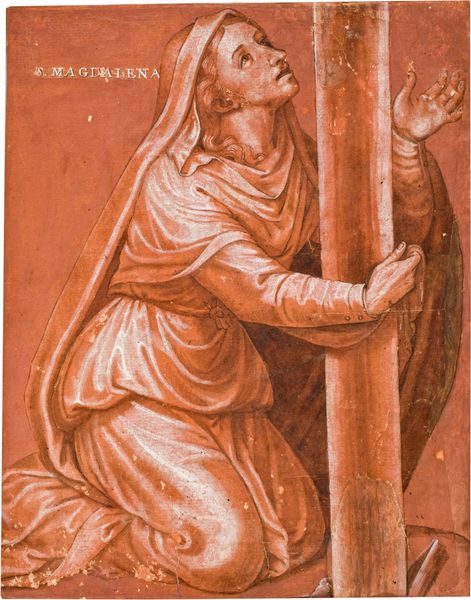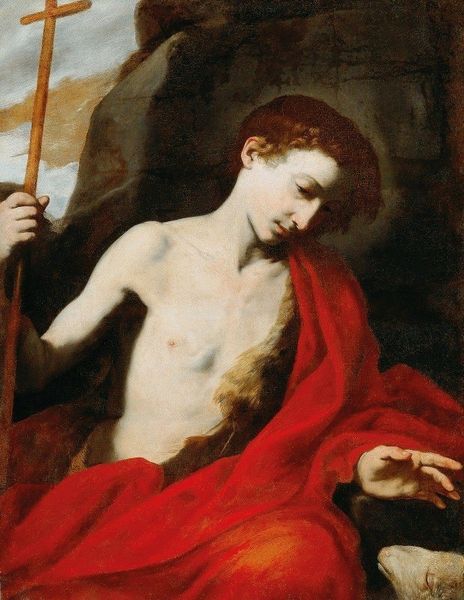
Copyright: Public Domain: Artvee
Curator: Rossetti’s “Joan of Arc," rendered in oil paint around 1864, presents the Maid of Orléans in a moment of almost devotional intensity. The colors glow. Editor: My first thought is of a waking dream—she’s luminous, but also disconnected, like she’s not quite here. Is she kissing that sword, or breathing into it? What's that all about? Curator: Well, the sword could represent both spiritual and earthly power, her divine calling and her military role. That close embrace...it suggests a unification of purpose. The sword pressing against her lips may symbolize a vow, a covenant. Historically, swords and daggers were kissed when pledging an oath. It's quite common in chivalric and legendary literature, for example, Perceval did so when claiming the magic sword. Editor: Ah, that makes sense. It's interesting, the backdrop is dark and a bit cluttered but it sets off Joan's intense coloring. Her red hair really pops! And look at the stylized fleur-de-lis shapes on the wall. The figure’s expression is…well, is it determination, or anguish? Maybe both? It gives me mixed feelings, strength and uncertainty. Curator: Indeed. Rossetti was known for imbuing his figures with layered emotional complexity. I see her gaze fixed upward, past the physical reality toward something transcendent. She's a woman possessed by vision, but caught in the drama and agony of that kind of spiritual possession. Her physical form is idealized and stylized; like a Pre-Raphaelite painting. Editor: The details on her garments, those repeating floral patterns. Does that hold any significance beyond just decoration? And look at the breastplate, so light and clean—almost too pure for a battlefield. Curator: The fleur-de-lis is associated with French royalty and so acts as a signal of the world in which Joan is rooted, her cause; while that untarnished armour maybe speaks to an idealism and even innocence… which given what we know of Joan’s fate creates some dramatic irony. Editor: Definitely ironic, now that you mention it. It’s quite affecting. I appreciate the duality – the mortal woman, weighed down by duty, aspiring toward some intangible ideal. Curator: Exactly. Rossetti masterfully encapsulates that tension—the weight of destiny and the fervent spirit willing to bear it. It invites me to reflect on that powerful collision between individual agency and inescapable historical forces. Editor: I'm leaving with a feeling of somber admiration, tinged with pity for the inevitable clash between spirit and the harshness of reality. And perhaps a glimmer of hope that such fervor might transcend it all, though.
Comments
No comments
Be the first to comment and join the conversation on the ultimate creative platform.
